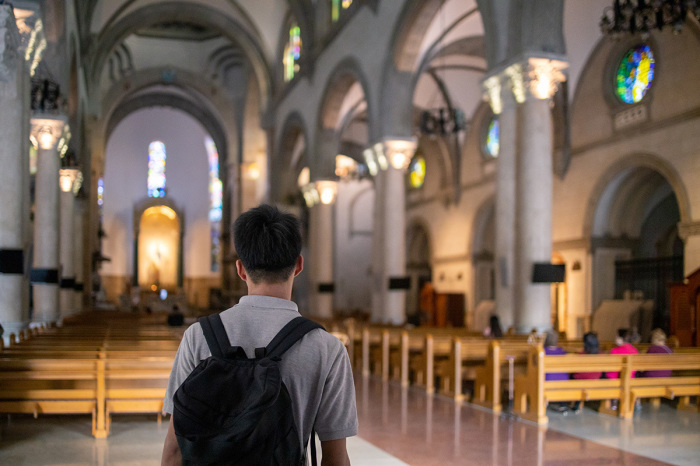Working-class Christian boys with strong faith in God do better in school than less religious peers: study

Teenage Christian boys from working-class families who regularly participate in their church and demonstrate strong faith in God are twice as likely to earn bachelor’s degrees as their moderately religious or nonreligious peers, new research shows.
The research by Ilana M. Horwitz, an assistant professor of Jewish studies and sociology at Tulane University, tracked 3,290 teenagers from 2003 to 2012 using survey and interview data from the National Study of Youth and Religion. It then links that data to the National Student Clearinghouse in 2016.
Horwitz, who released her findings published in her latest book, God, Grades, and Graduation, recently highlighted some of her work in a guest essay for The New York Times.
While the benefits of religion varied among teenage boys, Horwitz found that working-class boys, regardless of race, appear to benefit the most from the offerings of their Christian community when it comes to education.
“Those raised by professional-class parents, for example, do not experience much in the way of an educational advantage from being religious. In some ways, religion even constrains teenagers’ educational opportunities (especially girls) by shaping their academic ambitions after graduation,” Horwitz said. “They are less likely to consider a selective college as they prioritize life goals such as parenthood, altruism and service to God rather than a prestigious career.”
The findings come even as data from the 2020 American Family Survey show that a striking minority, just 36%, of parents believe churches are serving their sons well. This share is almost equal to the 33% who say the same about how the criminal justice system is serving their sons. A minority of parents also believe churches are serving their daughters well, but that number is 5 percentage points higher at 41%.
Some 42% of parents, particularly those who are caucasian, believe sports and other clubs, served their sons better than churches.
In her study, however, Horwitz shows that for males, particularly those from working-class families, religious belief and involvement are a positive force on academic achievement.
“The academic advantage of religious working-class children begins in middle and high school with the grades they earn. Among those raised in the working class, 21% of religious teenagers brought home report cards filled with A’s, compared with 9% of their less-religious peers,” Horwitz said.
“Grades are also the strongest predictor of getting into and completing college, and religious boys are more than twice as likely to earn grades that help them be competitive for college admissions and scholarships.”
Strong religious beliefs and involvement were also shown to buffer working-class teenagers from despair.
“Since the early 2000s, just as the kids in my study were entering adolescence, there has been a drastic rise in the number of working-class men dying deaths of despair from opioids, alcohol poisoning and suicide,” Horwitz noted.
“But despair doesn’t die: It gets transmitted to children. Most of the working-class kids in my study — especially boys — seemed to look out in the world and feel despair physically, cognitively and emotionally. I found that most of the working-class boys in the study had dropped out of the educational system by their mid-20s and seemed on track to repeat the cycle of despair.”
Last September, husband and wife research team, Anne Case and Nobel Prize winner Angus Deaton, found in their working paper, "The Great Divide: Education, Despair and Death," that Americans who don’t have a college degree are now facing a “bleak” and deadlier future compared to those who do.
Horwitz argues that religion acts as a buffer for teenage males from working-class families and helps with academic achievement, “because it offers them the social capital that affluent teenagers can get elsewhere.”
“Religious communities keep families rooted to a place and help kids develop trusting relationships with youth ministers and friends’ parents who share a common outlook on life,” she noted. “Collectively, these adults encourage teenagers to follow the rules and avoid antisocial behaviors.”




























